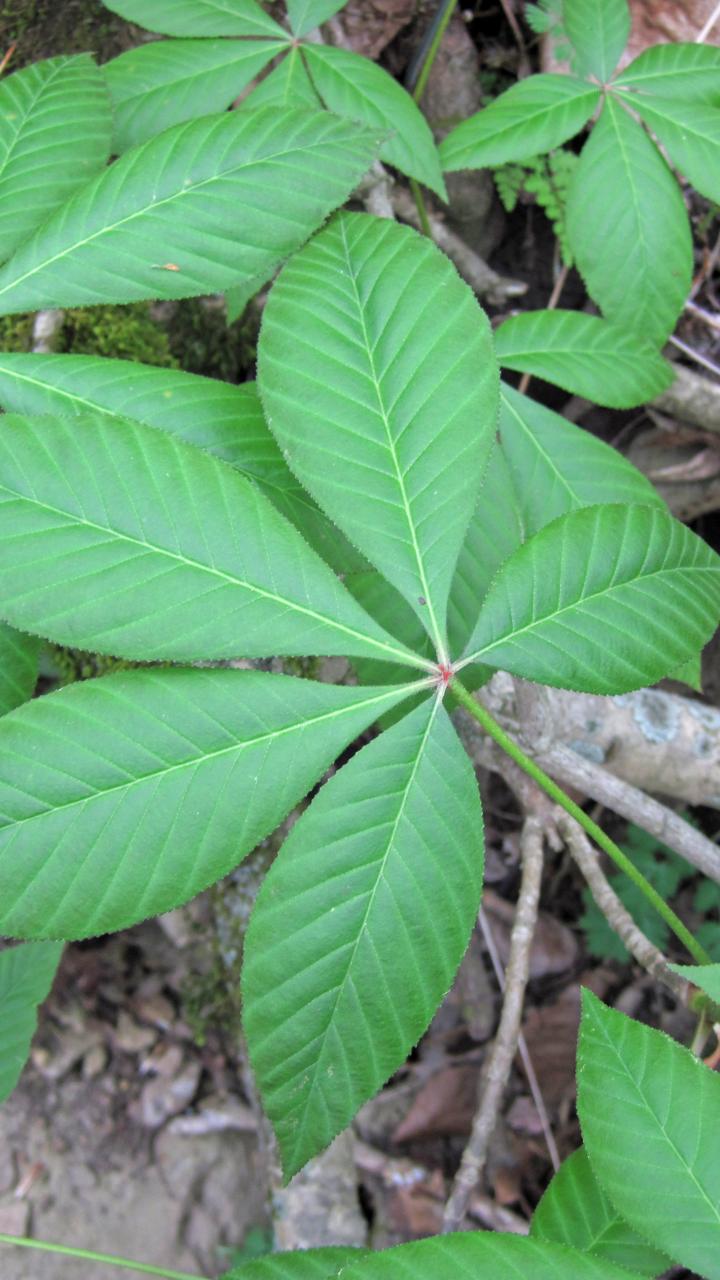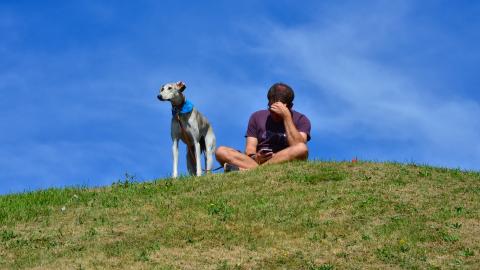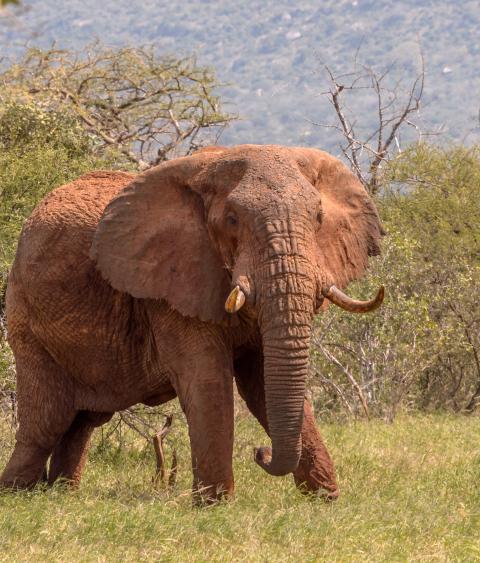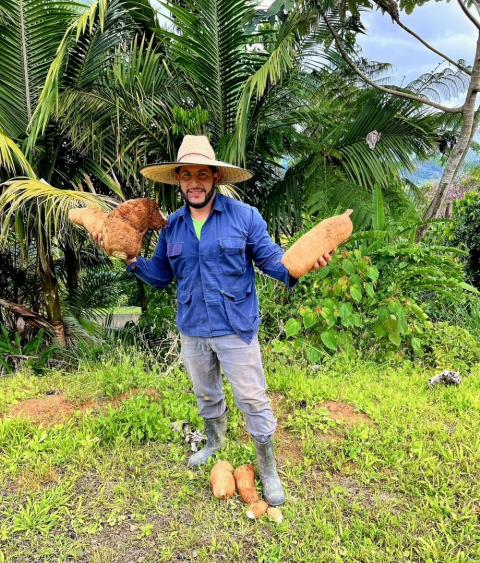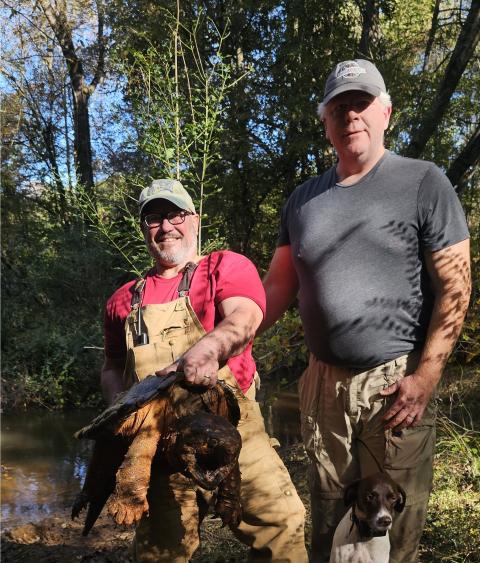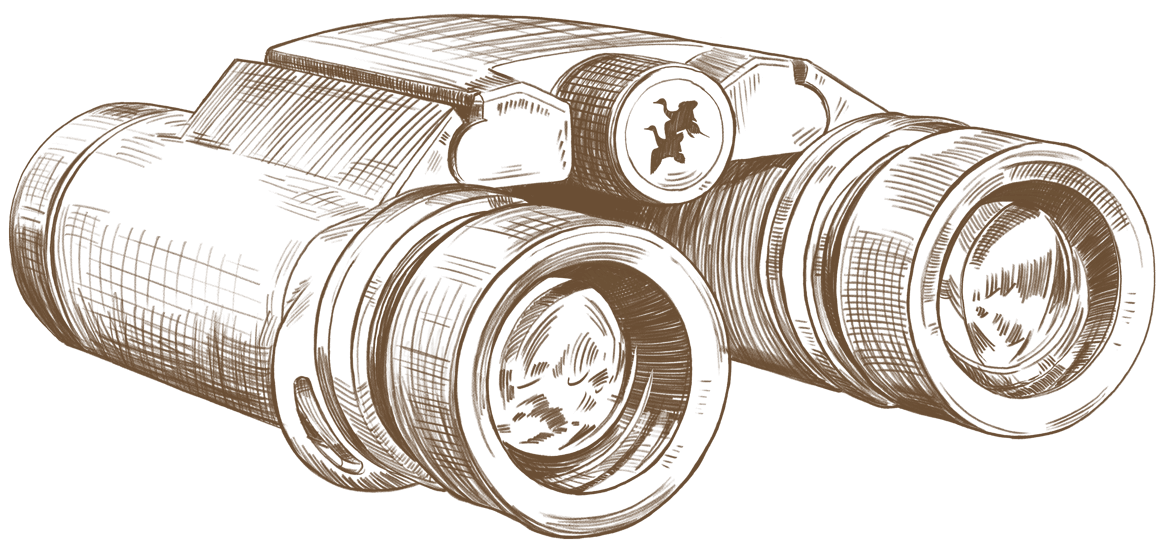Breadcrumb
- Home
- Outdoor News Bulletin
- August 2025
- The Tyranny of The Urgent: Taking Time To Think
Outdoor News Bulletin
The Tyranny of the Urgent: Taking Time to Think
Each month I sit down to craft a President’s message for the Outdoor News Bulletin. Invariably, the message doesn’t take shape until the deadline is looming as I scramble to curate coherent thoughts into a thoughtful and meaningful message. Each month that this cycle repeats itself, I frustratingly commit to better planning and preparation for next month’s message. Next month’s message, I tell myself, will be better, more thoughtful, reflective and comprised of critical thought. I will have more time and a better opportunity to compose a more meaningful message. Then, as the next month’s deadline looms, the cycle repeats itself. I share this repeating phenomenon only as an example of what transpires for far too many of us every day in the conservation space and what author Charles E. Hummel coined in his book by the same name, the Tyranny of the Urgent.
Tyranny of the Urgent Defined
Few phrases are as aptly descriptive and lacking need for transcription as “tyranny of the urgent.” In simplest of terms, it’s the cruel and unreasonable power the urgent tasks exert over all other tasks. In this context, the sole determinant of importance is urgency. Consequently, many potentially more important or more impactful tasks are relegated to a lower priority despite greater significance. In 2022, Decker et al. published an insightful and impactful paper on this problem in the conservation institution titled Taking time to think: The tyranny of being “too busy” and the practice of wildlife management. Among many other important insights, Decker’s paper highlights that being too busy impedes both the ability for critical thinking as well as reflection, two critical elements of decision making. Decker’s paper makes a strong case that conservation’s often cited reflection deficit disorder is a likely artifact of simply being too busy.
According to Decker and others, conservation is not alone in this challenge. Other so-called careers of purpose, such as health care and education, that attract professionals who share “a calling” also are subject to the impacts of being too busy. Our level of resolve compels us to accept responsibility for more than we can realistically accomplish. We want to do it all so we optimistically believe we can get it all done. As passion and purpose drive us to gradually overcommit ourselves, the results often suffer.
Early Career Advice
Many years ago, when I got my first field job as an agency area biologist, I had responsibility for multiple species across approximately 4.5 million acres, most of which was largely unfamiliar to me. A recently retired biologist approached me early in my new role and imparted some profound wisdom. Although seemingly simple and intuitive, his advice became more profound and relevant through time. He simply said, “My advice to you is to figure out the most impactful activities to engage in. You can’t do it all and if you try to do it all, you’ll do a poor job at everything. Some things will just need to fall through the cracks, and you need to figure out which things they are.” Of course, knowing that and adhering to it are two different things.
Although I have written a few President’s messages about the distraction of technology and the information age, I’m not typically one who spends a lot of time lamenting the ills of a modern society. The benefits of modern science and technology clearly add to our quality of life. However, in the context of the tyranny of the urgent, tools like AI and being able to connect to work email, texts, and phone calls any time of the day on our cell phones, may give us a false sense of being able to do more than we are already trying to achieve. It may create increased capacity in some ways, but it likely further contributes to the lack of time and space to critically think and creatively problem solve.
Creating Space to Think Shapes the Outcome
I’m often moved by great writers and thinkers in conservation and marvel at their profound thinking as well as their unique abilities to clearly articulate complex thought. I find myself often thinking, “I wish I had more time to think about that,” or “I wish I had enough time to write about that in a clearer or more impactful way.” Perhaps it speaks to my more rudimentary thinking and writing skills, but I’m frequently envious of the thought and writing space it appears was afforded to the conservation thinkers of a century ago. Aldo Leopold in particular, relied upon the quiet and reflective environment of The Shack to both ponder ecological relationships as well as succinctly articulate them. I’m curious what A Sand County Almanac would look like, absent the quiet and reflective space of The Shack. Although likely still a profound masterpiece, I suspect it would be different. Leopold exemplified the importance of quiet reflection in nature as a cornerstone of critical thinking. His approach highlighted the need to slow down, observe, and connect with the natural world to foster a deeper understanding and develop a land ethic. John Dewey, a key figure in modern critical thinking, emphasized reflective thinking as a crucial process for learning and problem solving.
Many historical and contemporary figures, including Albert Einstein and Sir Isaac Newton, reportedly embraced solitude and quiet for deep thought and breakthrough ideas. The examples are numerous. Carl Jung, the pioneering Swiss psychiatrist and psychoanalyst would dedicate two hours of focused writing time in his private office each morning, followed by meditation and walks in nature to nurture his deep work practices. Bill Gates, famously engaged in "think weeks" – periods of complete isolation at a lakeside retreat, dedicating himself entirely to reading and contemplative thought, which he referred to as "CPU time". Henry David Thoreau, and his iconic work Walden was a product of his deliberate isolation in a cabin by Walden Pond, where he immersed himself in nature and self-reflection to solidify his transcendentalist beliefs. And Mark Twain, the beloved American writer created a significant portion of The Adventures of Tom Sawyer while working in an isolated cabin separate from his primary residence. Contemporary authors regularly retreat to a quiet place to finish their tomes and Academia take sabbaticals to immerse themselves in their research.
Is AI an Answer?
As our plates become more and more full, it’s unlikely that more staff are coming to the rescue, or that you can partake in a “think week” or sabbatical, or maybe even squeeze in a wild walk in nature (although if you can, I highly recommend any and all of it); thus we seek tools to offer respite and enhance our capacity to at least provide the illusion of being able to accomplish more in less time—tools like artificial intelligence (AI). AI, by its own admission, is not yet reflective as it cannot introspect but can only simulate reflection by identifying errors, analyzing performance, and adjusting behavior. Similarly, by its own admission, while AI can perform tasks that involve critical analysis, like evaluating information and identifying patterns, it doesn't truly possess the capacity for independent, nuanced critical thinking and creativity like humans. AI can analyze and process data to a degree that surpasses human capabilities in certain areas, but it lacks subjective judgment, common sense, and ethical reasoning that are essential to human critical thinking. Rather than simply taking on less work, we continue to pursue tools and tricks that might allow us to more effectively and efficiently address the byproducts of our propensity to overcommit.
Increasingly, studies are comparing AI-generated content to human creativity and innovation. A quick search for the topic yields numerous recent studies comparing AI generated creativity and innovation to the same when generated by humans. In one study, comparing the ability of AI chatbots to human participants in generating uncommon and creative uses for everyday objects. And while the chatbots generally performed well, and the humans' scores were more variable, the best scores were still attributed to human participants. In yet another study, models showed that initially AI is more creative and innovative than humans, presumably because they have access to far greater data and information than humans can assimilate. However, as vast as the data are, they are still finite and ultimately creativity of AI decreases, whereas humans can innovate and creatively think indefinitely. These studies highlight the importance of thinking, of taking time to really process information and innovate solutions that meet the moment. At this point even AI confesses, “AI excels in speed and efficiency, while human creativity shines in its capacity for transformative thinking and the generation of surprising, new truths.”
Flexibility in thinking and problem solving is arguably humankind’s greatest advantage, at least for the time being.
For the Sake of Self and Conservation
The causes for being too busy are as equally diverse as the solutions. The Decker et al paper of 2022 offers some practical strategies to combat the problem. It’s highly unlikely that deeply passionate wildlife professionals will ever learn how to care less. It’s also similarly unlikely that wildlife practitioners will be successful in stemming the flow of urgent tasks needing immediate attention. Yet taking a moment to assess the true urgency and scheduling time for quiet and thinking can be tools to explore.
Ultimately, each of us must recognize where we sit in the cycle of being too busy, and where we do our best reflective and critical thinking. We should then purposely carve out time to contemplate our role, our approach, and just exactly how we can wrestle back control of our intellectual faculties from the grips of being too busy. The consequences of failing to do so are significant and costly and they range from employee burnout to overall employee ineffectiveness. The perpetual ping-ponging from urgent task to urgent task, regardless of their importance or significance, can foster the illusion of productivity and importance, passing the days, weeks, months, and years.
For us as a conservation community, to make real progress on what matters most in today’s conservation challenges will require all of us to be our most creative, innovative, and critical thinking selves. When we try to do it all, that isn’t achieved.
